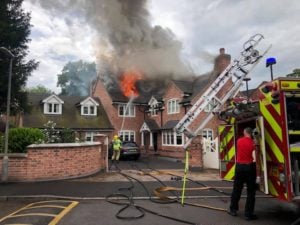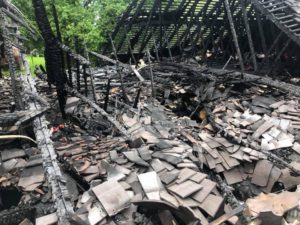
Two children playing with electricity on floor at home
School is officially out for summer so it’s that time of year when we all look forward to jet setting off to a hot destination for some well deserved chill out time with friends or family. Even though your escaping the hustle and bustle of everyday life, electrical safety is something you need to stay very much on the ball with even whilst abroad. Some countries do not have the same safety regulations as we do in the UK so some vital checks should really be part of your holiday routine to keep you safe.
A a few vital checks when travelling abroad and how to keep safe when it comes to electrical appliances. Check out advice from Electrical Safety First’s website who have some helpful information for travellers.
Your hotel room – check that:
•there are no bare wires that can be touched where electrical accessories have been removed or damaged
•sockets and light switches are not damaged or have their covers missing
•light bulbs are properly inserted into all light fittings and are not broken or cracked
•there are no trailing extension leads or overloaded sockets and never ignore the warning signs of burning smells, sounds of arcing (buzzing and crackling), fuses blowing or scorch marks on plugs and sockets
Bathrooms – check that:
•electrical accessories cannot be touched whilst in the bath or shower
By the pool – check that:
•electrical appliances are kept away from the water
On camp sites – check that:
•there is Residual Current Device (RCD) protection or a similar device that will cut off the supply if there is an electrical problem
•flexible cables are positioned appropriately to prevent them being damaged
•electrical appliances are stored in a dry place
Keeping yourself & your family safe is not difficult if you follow a few simple rules:
1.Never touch electrical equipment with wet hands.
2.Never touch light switches if they are cracked or show signs of damage.
3.Never plug equipment into a socket which looks damaged/cracked or has part or all of the cover missing.
4.Never use mains powered electrical appliances in a bathroom.
5.Always check that cables are securely attached to electrical equipment and are not cut, nicked or damaged in anyway. There should be no joints in the cable and certainly no repairs with insulating tape. Cables should also be checked for signs of overheating, such as discoloration.
6.Always check that the travel adaptor you are using is the correct type for the country in which you are travelling and never force it into a socket if it does not easily fit.
Wherever you are on holiday, no-one should have to compromise their safety so always report any electrical dangers to the person responsible. This could be your hotel rep, tour operator or the hotel manager. If the danger is not removed immediately, insist on being moved.
These types of checks will put your mind at rest so you can really enjoy your break. Wishing you all a safe and happy holiday!

 School is nearly out for summer and one thing that will be on the to do list for some families will be looking or even moving into student accommodation in time for September. Electrical safety is an important consideration at this time which can range from niggly problems such as the electric tripping just as you’re about to save your work on your laptop or MacBook, to serious electrical issues that could cause electrical injury or even death.
School is nearly out for summer and one thing that will be on the to do list for some families will be looking or even moving into student accommodation in time for September. Electrical safety is an important consideration at this time which can range from niggly problems such as the electric tripping just as you’re about to save your work on your laptop or MacBook, to serious electrical issues that could cause electrical injury or even death.
